
Gjirokastër: The Stone City of Albania
Nestled in the heart of southern Albania, Gjirokastër is a UNESCO World Heritage site known for its well-preserved Ottoman architecture. The city is often referred to as the 'City of Stone' due to its unique stone houses, cobbled streets, and the imposing Gjirokastër Fortress that overlooks the town. The fortress offers breathtaking views of the Drino Valley and is home to a fascinating museum featuring artifacts from Albania's rich history. The old town of Gjirokastër is a labyrinth of narrow alleys and steep stairways, where you can explore traditional stone houses, each with its own story. Among the most notable is the Zekate House, a grand example of Ottoman-era architecture, which offers a glimpse into the lifestyle of the wealthy families of the past. The Ethnographic Museum, located in the birthplace of Albania's former communist leader Enver Hoxha, provides further insight into the city's cultural heritage. Food lovers will delight in the local cuisine, which blends Mediterranean and Balkan flavors. Don't miss the chance to try 'Qifqi', a traditional rice ball dish unique to Gjirokastër. The city's vibrant bazaar, filled with local crafts and souvenirs, is the perfect place to experience the local culture and pick up a unique memento of your visit. Gjirokastër is not just a destination; it's a journey back in time, offering a rich tapestry of history, culture, and natural beauty.
Local tips in Gjirokastër
- Wear comfortable shoes as the city’s cobbled streets and steep paths can be challenging.
- Visit the Gjirokastër Fortress in the early morning or late afternoon to avoid the midday heat.
- Try the local dish 'Qifqi' at one of the traditional restaurants in the old town.
- Explore the local bazaar for unique souvenirs and handmade crafts.
- Plan your visit in spring or autumn for the best weather and fewer crowds.
Gjirokastër: The Stone City of Albania
Nestled in the heart of southern Albania, Gjirokastër is a UNESCO World Heritage site known for its well-preserved Ottoman architecture. The city is often referred to as the 'City of Stone' due to its unique stone houses, cobbled streets, and the imposing Gjirokastër Fortress that overlooks the town. The fortress offers breathtaking views of the Drino Valley and is home to a fascinating museum featuring artifacts from Albania's rich history. The old town of Gjirokastër is a labyrinth of narrow alleys and steep stairways, where you can explore traditional stone houses, each with its own story. Among the most notable is the Zekate House, a grand example of Ottoman-era architecture, which offers a glimpse into the lifestyle of the wealthy families of the past. The Ethnographic Museum, located in the birthplace of Albania's former communist leader Enver Hoxha, provides further insight into the city's cultural heritage. Food lovers will delight in the local cuisine, which blends Mediterranean and Balkan flavors. Don't miss the chance to try 'Qifqi', a traditional rice ball dish unique to Gjirokastër. The city's vibrant bazaar, filled with local crafts and souvenirs, is the perfect place to experience the local culture and pick up a unique memento of your visit. Gjirokastër is not just a destination; it's a journey back in time, offering a rich tapestry of history, culture, and natural beauty.
When is the best time to go to Gjirokastër?
Iconic landmarks you can’t miss
Castle of Gjirokastra
Explore Gjirokastra Castle: A historic Balkan fortress with stunning views, military museums, and a glimpse into Albania's past.
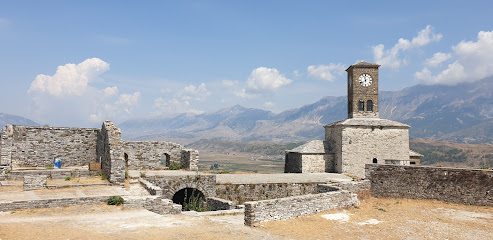
Vojsava Restaurant
Experience authentic Albanian cuisine at Vojsava Restaurant in Gjirokastër, where traditional flavors and warm hospitality create unforgettable memories.
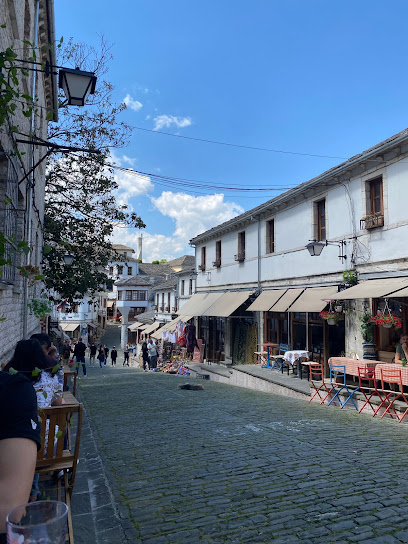
Taverna Lani
Experience authentic Albanian flavors at Taverna Lani in Gjirokastër. Fresh, local ingredients and traditional recipes create an unforgettable dining experience.
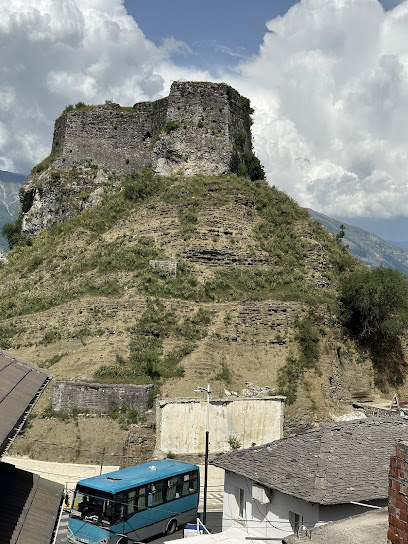
The Barrels Ms ( te Fuçite )
Experience authentic Albanian cuisine at The Barrels Ms in Gjirokastër—where every meal tells a story of tradition and locally sourced flavors.
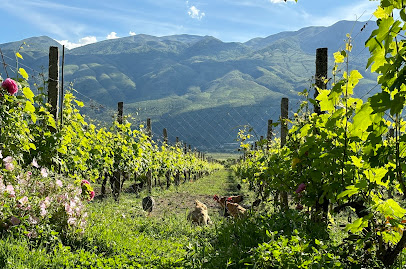
Resort Kerculla
Escape to Resort Kerculla in Gjirokaster: Experience tranquility, explore history, and indulge in Albanian hospitality. Your perfect getaway awaits!
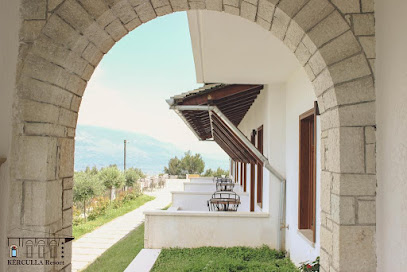
Hangover Cocktail Bar
Experience Gjirokaster's vibrant nightlife at Hangover Cocktail Bar, where expertly crafted cocktails meet lively music for unforgettable evenings.
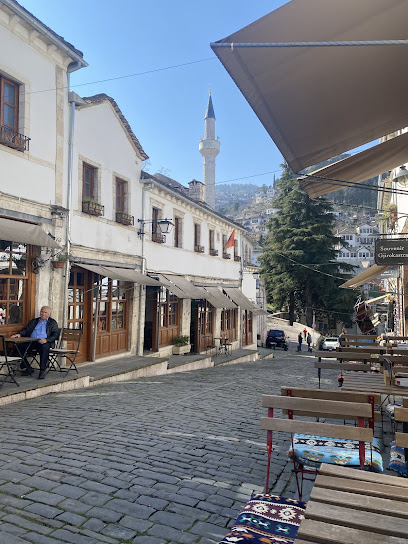
Skënduli House
Explore Gjirokastra's Skënduli House: A Historical Museum Celebrating Albanian Culture and Heritage.
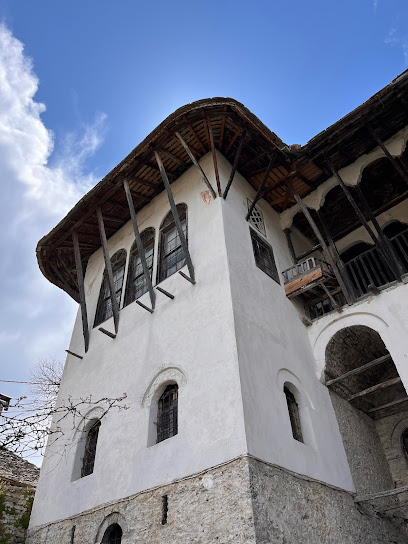
Gjirokastra Bazaar
Explore Gjirokastra Bazaar: A vibrant hub of Albanian culture, offering traditional crafts, local flavors, and historical charm in a UNESCO-listed city.
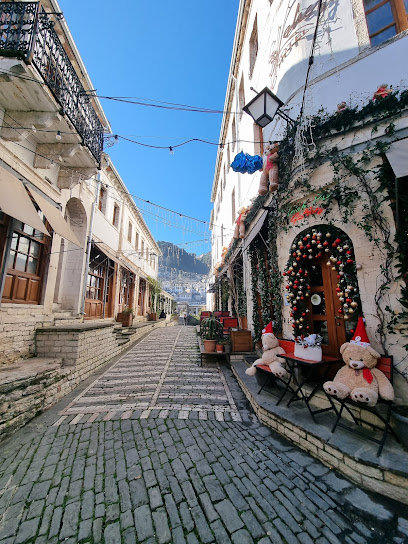
Zekate House
Explore the Zekate House in Gjirokastër: A stunning example of Ottoman architecture offering a glimpse into Albania's rich history and culture.
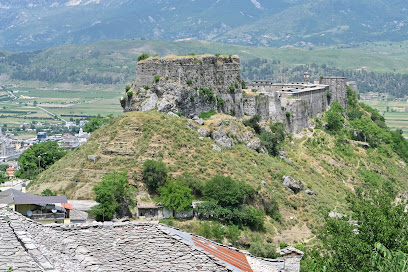
Corner of Bazaar
Experience authentic Albanian cuisine in a cozy setting at Corner of Bazaar, nestled in Gjirokastra's historic Old Bazaar.
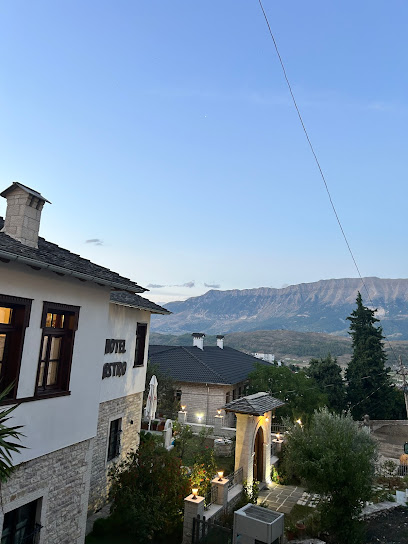
Gjirokastra Old Town
Explore Gjirokastra Old Town: A UNESCO gem with Ottoman architecture, a vibrant bazaar, and a historic castle, offering a unique Albanian experience.
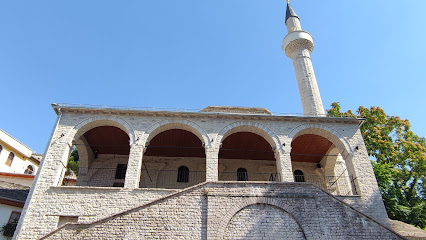
Taverna Murgana
Experience authentic Albanian cuisine in a charming setting with stunning views at Taverna Murgana, Gjirokastër. A culinary gem!
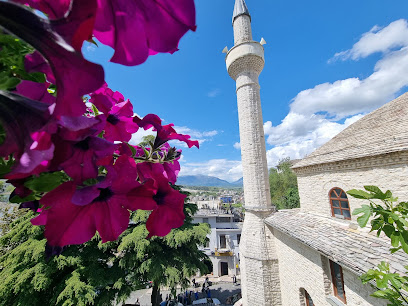
The cold war tunnel
Explore Gjirokastra's Cold War Tunnel: An underground glimpse into Albania's communist past and Enver Hoxha's paranoia.
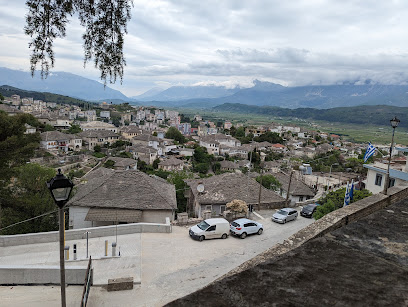
Stone City Hostel
Experience the heart of Gjirokastra at Stone City Hostel, where comfort meets local culture in a charming Albanian setting.
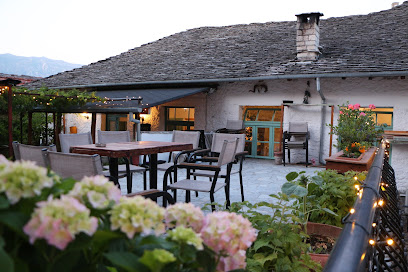
Hotel Bebej Tradicional
Experience authentic Albanian hospitality in the heart of Gjirokastër at Hotel Bebej Tradicional. Comfort and tradition await!

Unmissable attractions to see
Canal d'Amour
Explore the breathtaking beauty of Canal d'Amour in Sidari, Greece, where stunning rock formations meet enchanting legends of love and romance.
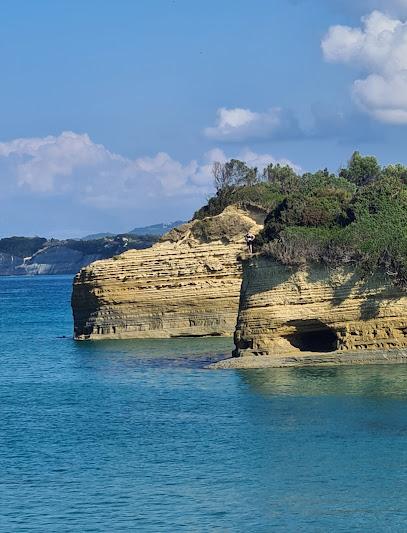
Butrint National Archaeological Park
Explore ancient ruins and natural beauty at Butrint National Park, a UNESCO World Heritage site in Albania with Greek, Roman, and Venetian history.
The Blue Eye
Experience the breathtaking beauty of The Blue Eye, a mesmerizing natural spring in Saranda, Albania, known for its vibrant blue waters and tranquil surroundings.
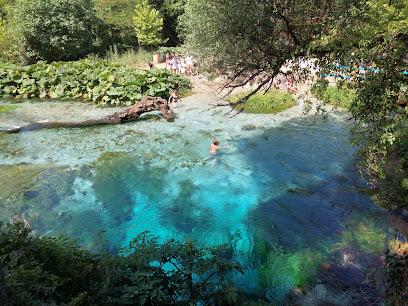
Castle of Gjirokastra
Explore the imposing Castle of Gjirokastra, a Balkan fortress with centuries of history, panoramic views, and captivating museum exhibits.
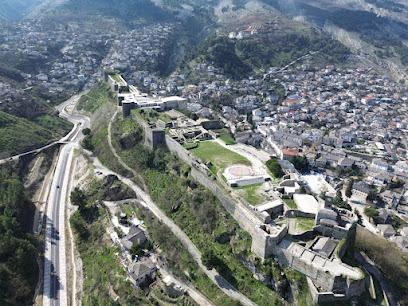
Kalaja e Lëkurësit
Explore a historic castle with panoramic views of Sarandë and the Ionian Sea. A must-see destination for history and scenery lovers.
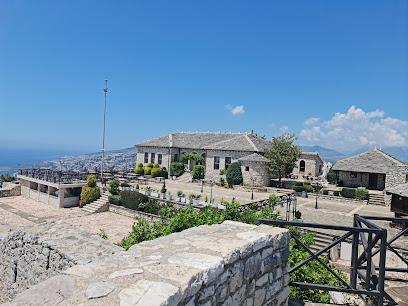
Kassiopi Castle
Explore the ancient ruins of Kassiopi Castle in Corfu, offering panoramic Ionian Sea views and a glimpse into the island's rich Byzantine history.
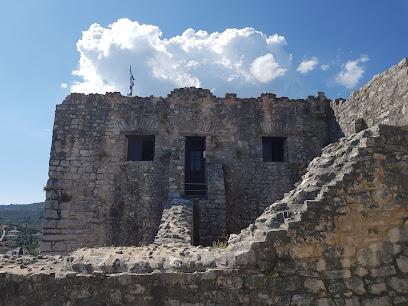
Plazhi Ksamilit
Discover Plazhi Ksamilit: turquoise waters, white sands, and island adventures await in Albania's coastal paradise.
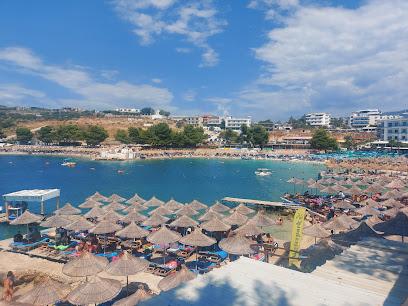
Barbati Beach
Experience the crystal-clear waters and stunning scenery of Barbati Beach, a must-visit destination on Corfu's northeast coast.
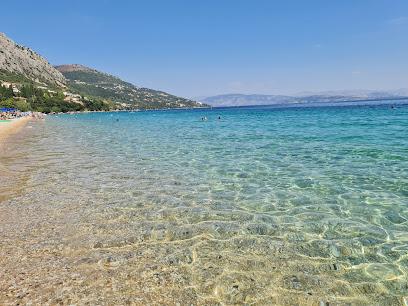
Old Perithia
Step back in time in Old Perithia, Corfu's oldest village, a beautifully preserved mountain settlement with Venetian architecture and stunning views.
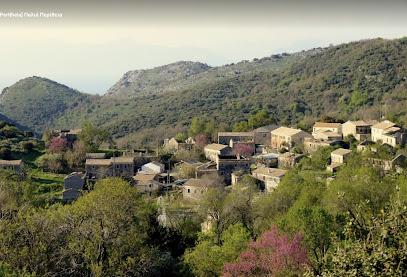
Llogara National Park
Discover Llogara National Park: Where dramatic mountains meet the stunning Albanian Riviera, offering breathtaking views and diverse ecosystems.
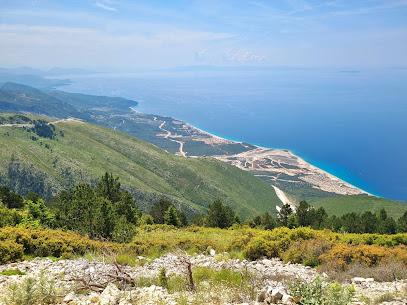
Klidonia ancient stone bridge
Discover the historic Klidonia Stone Bridge in Epirus: a picturesque landmark offering stunning views and a glimpse into Greece's rich past.
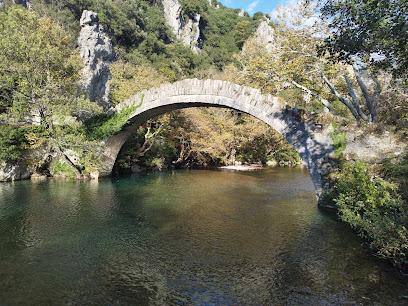
Cape Drastis
Discover Cape Drastis: Corfu's hidden gem with dramatic cliffs, turquoise waters, and secluded beaches, offering a tranquil escape.
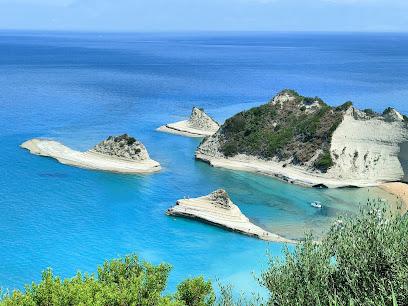
Dhërmiu Beach
Discover Dhërmiu Beach: where crystal-clear waters meet dramatic cliffs on the enchanting Albanian Riviera, offering a perfect escape for relaxation and adventure.
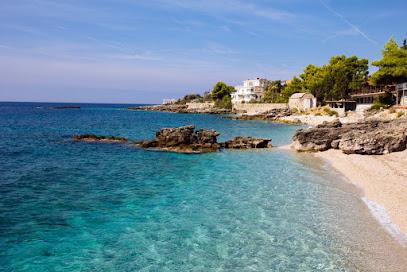
Loggas beach
Experience the breathtaking beauty of Loggas Beach in Corfu: dramatic cliffs, golden sands, and unforgettable sunset views over the Ionian Sea.
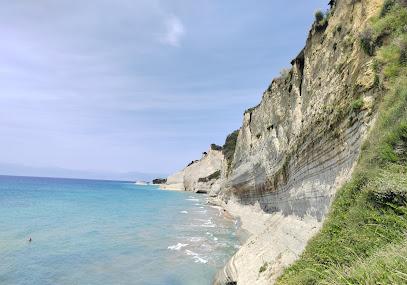
Gjipe Beach
Discover Gjipe Beach: A hidden gem on the Albanian Riviera with turquoise waters, dramatic canyons, and a tranquil escape from the everyday.
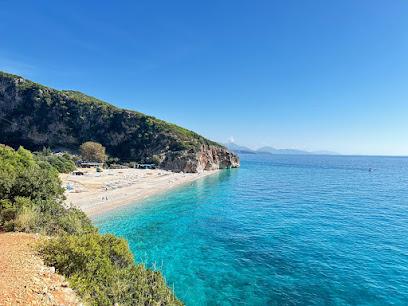
Essential places to dine
Taverna Tradicionale KARDHASHI
Experience authentic Albanian cuisine in Gjirokastra at Taverna Tradicionale KARDHASHI - where tradition meets flavor.
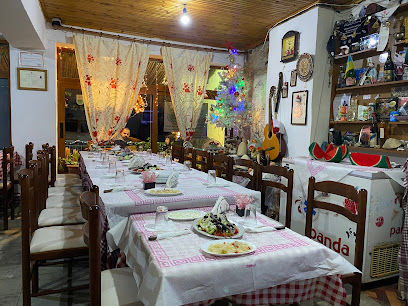
Restorant Tradicional Urat
Experience authentic Albanian flavors at Restorant Tradicional Urat in Gjirokaster - where tradition meets taste in a charming setting.
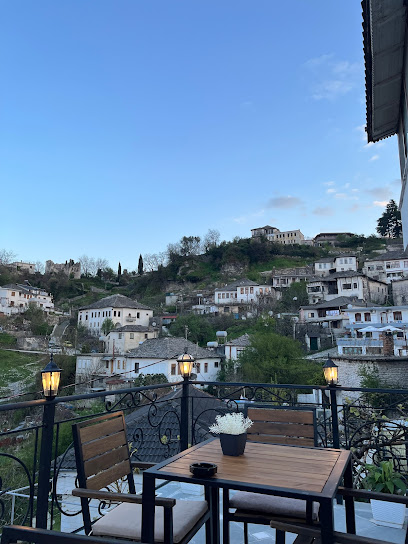
Vojsava Restaurant
Experience authentic Albanian flavors at Vojsava Restaurant in Gjirokaster—where tradition meets taste.
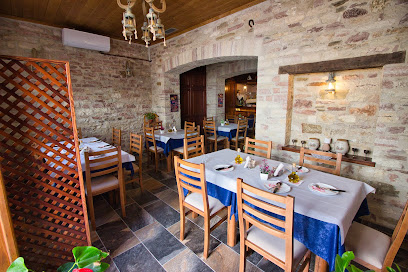
Taverna Lani
Discover authentic Albanian flavors at Taverna Lani in Gjirokaster—where tradition meets culinary excellence in a charming setting.
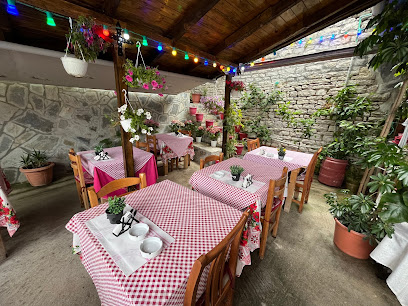
The Barrels Ms ( te Fuçite )
Experience authentic Albanian cuisine at The Barrels Ms in Gjirokaster - where every meal tells a story.
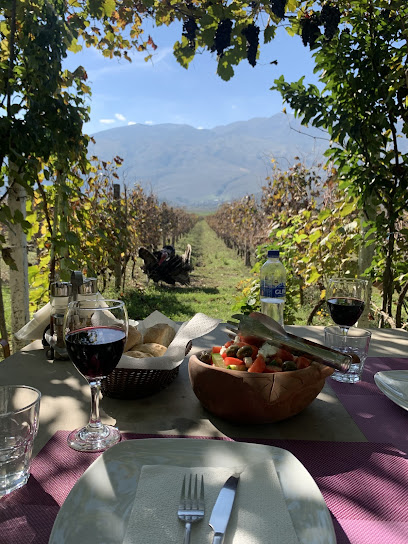
Te Kalaja Restaurant & Rooms
Discover authentic Albanian flavors at Te Kalaja Restaurant & Rooms in Gjirokaster—where great food meets stunning views.
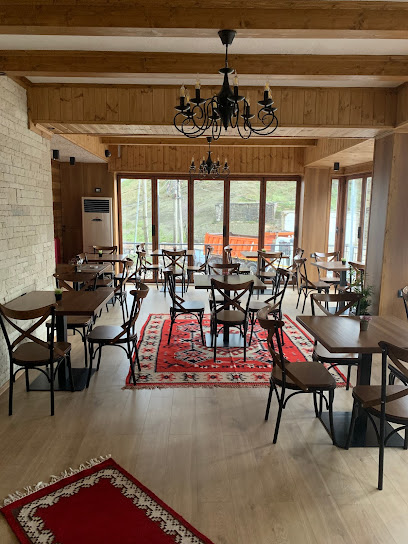
Grill House 13
Discover the authentic flavors of Albanian barbecue at Grill House 13 in Gjirokaster – where tradition meets taste.
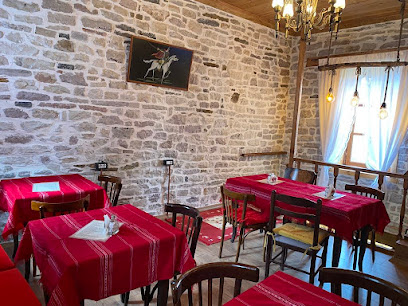
Restaurant Tradicional Odaja
Discover the flavors of Albania at Restaurant Tradicional Odaja - where tradition meets taste in Gjirokaster's heart.
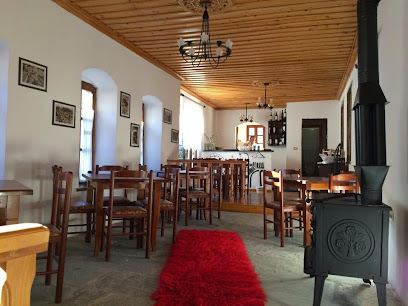
Corner of Bazaar
Experience authentic Albanian cuisine at Corner of Bazaar in Gjirokastra – where flavor meets tradition in a cozy setting.
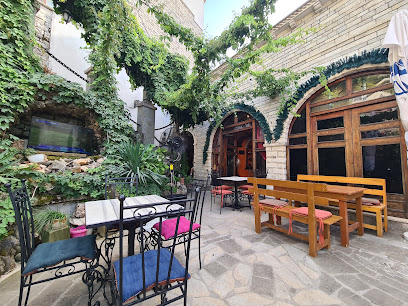
Edua Gjirokaster
Discover the flavors of Albania at Edua Gjirokaster - where health meets tradition in every bite.
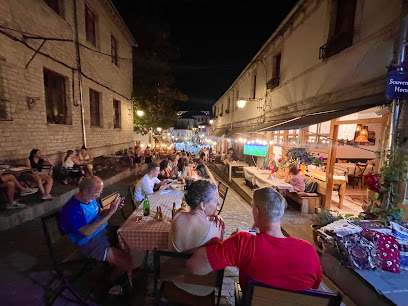
Kujtimi Restaurant
Discover authentic Albanian flavors at Kujtimi Restaurant in Gjirokaster - where tradition meets taste in a charming setting.
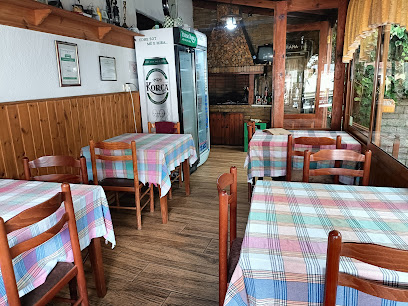
Checkin-Restaurant & Pizzeri
Experience authentic Albanian flavors at Checkin-Restaurant & Pizzeri in picturesque Gjirokaster - a culinary gem not to be missed!
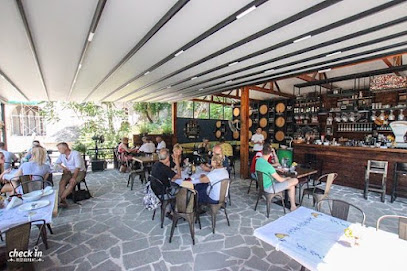
Submarine 105
Discover authentic Albanian cuisine at Submarine 105 in Gjirokastra - where tradition meets flavor in a cozy setting.
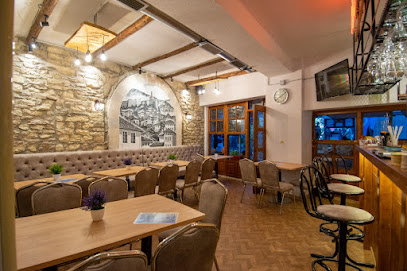
Taverna Kuka
Experience authentic Albanian cuisine at Taverna Kuka in Gjirokaster – where tradition meets flavor in a charming setting.
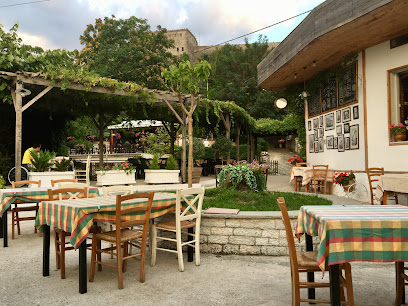
Taverna Labëria
Experience authentic Albanian cuisine at Taverna Labëria in Gjirokaster, where traditional flavors meet stunning views.
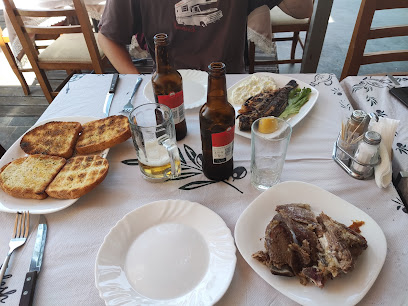
Markets, malls and hidden boutiques
Kodra Sweet hill
Experience the sweetness of Kodra Sweet Hill, a delightful ice cream shop in Gjirokastra, Albania, offering a variety of flavors amidst stunning scenic views.
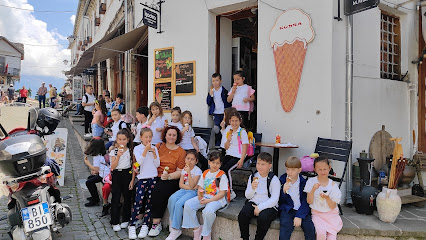
Tobacco One
Discover the finest tobacco products in Gjirokastra at Tobacco One, where quality meets tradition in an inviting atmosphere.
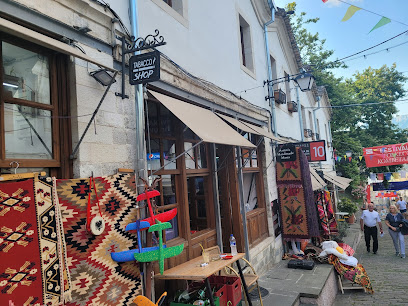
Glow Fashion, Gjirokastër
Discover trendy clothing and local craftsmanship at Glow Fashion, the ultimate shopping destination in Gjirokastër, Albania.
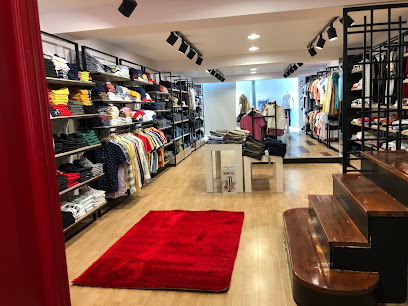
SUPERMARKET SULAJ
Explore Gjirokaster's vibrant flavors at Supermarket Sulaj, your local grocery store for fresh produce and delightful Albanian delicacies.
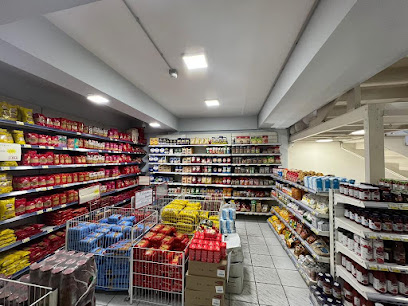
Supermarket Aldi
Discover local flavors and essentials at Supermarket Aldi in Gjirokastër, Albania – your go-to spot for budget-friendly shopping.
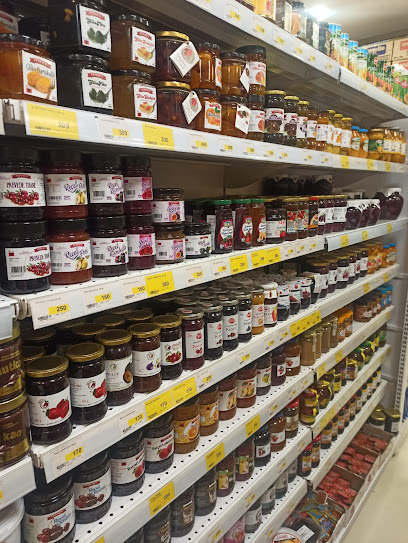
Tobacco Klavis
Discover authentic tobacco blends at Tobacco Klavis, a charming shop in Gjirokastra, Albania, showcasing the rich tobacco culture and craftsmanship.
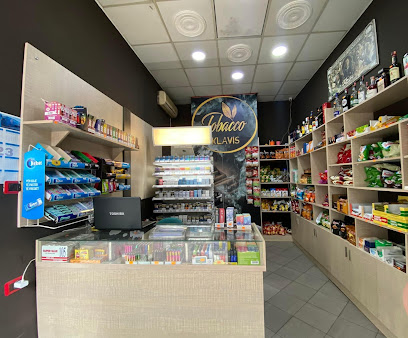
Alma Souvenir
Discover unique gifts and authentic Albanian crafts at Alma Souvenir in Gjirokaster, a perfect stop for memorable souvenirs.
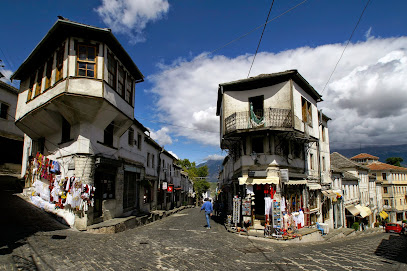
Superstar Market
Explore Superstar Market in Gjirokaster for a wide selection of local and international products, fresh produce, and unique souvenirs.
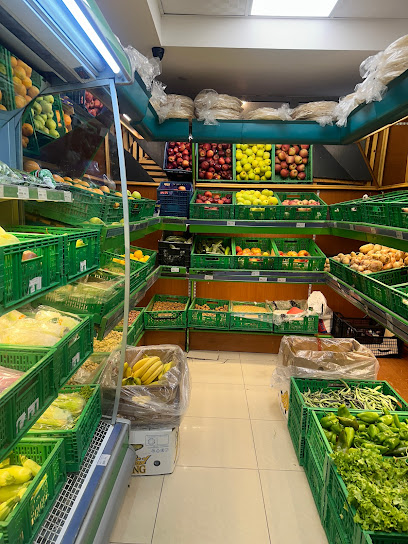
Antique Shop
Uncover unique treasures and rich history at Gjirokastra's charming Antique Shop, a must-visit destination for collectors and tourists alike.
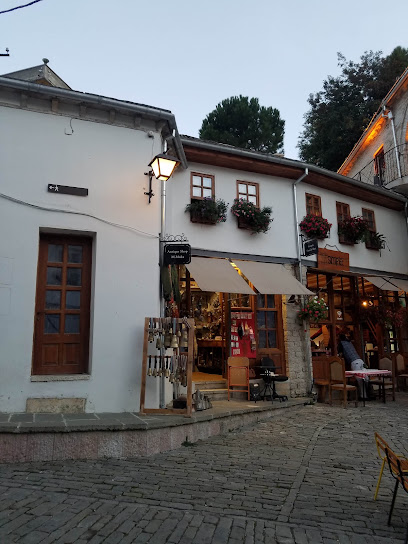
Lule Natyrale Duka
Discover the vibrant floral artistry of Lule Natyrale Duka in Gjirokaster, where every bouquet tells a story and celebrates Albanian culture.
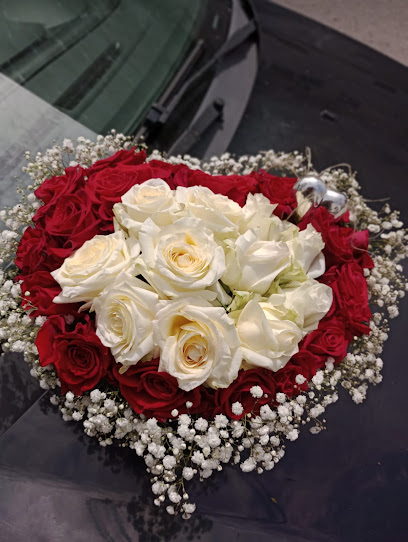
Stop & Shop
Explore Gjirokastër's vibrant grocery scene at Stop & Shop, where fresh produce and local delicacies await every visitor.
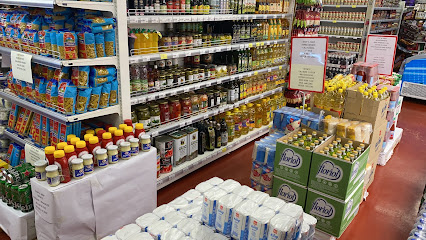
Tobacco Shop
Explore the charm of Gjirokastra at the Tobacco Shop, where local tobacco traditions meet warm hospitality in an authentic Albanian experience.
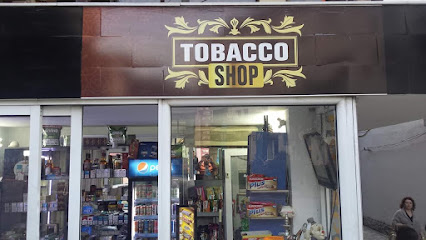
Aquila Liquori A&N GLAUK
Discover the essence of Albanian culture at Aquila Liquori, a family-run liquor store in Gjirokaster offering a selection of local and international beverages.
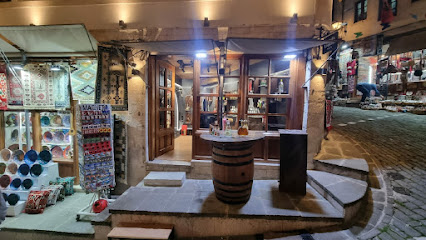
Supermarket Peçi
Explore the local flavors and culinary delights at Supermarket Peçi, a grocery store in Gjirokaster, Albania, perfect for tourists seeking authentic Albanian products.
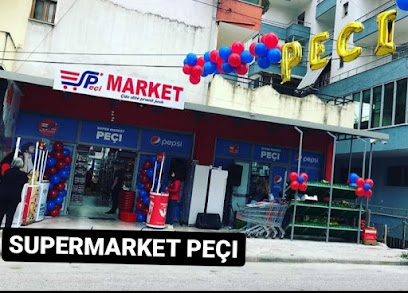
Fast Food Sara
Experience the vibrant flavors of Gjirokaster at Fast Food Sara, where quick bites meet Albanian culinary traditions in a cozy atmosphere.
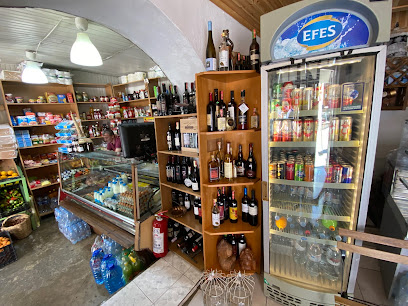
Essential bars & hidden hideouts
Hangover Cocktail Bar
Experience the vibrant nightlife of Gjirokaster at Hangover Cocktail Bar, where innovative cocktails and a lively atmosphere await.
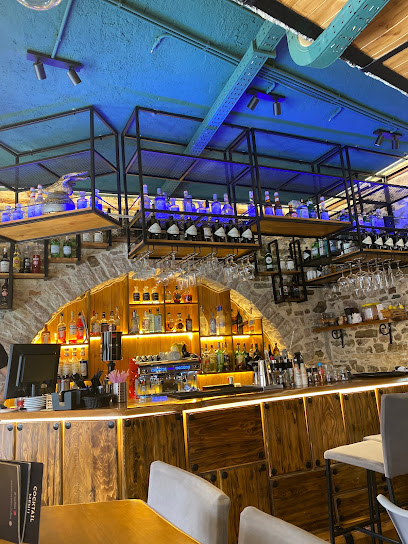
Komiteti Bar - Gjirokastër
Discover the vibrant atmosphere of Komiteti Bar in Gjirokastër, where unique architecture meets local culture and delightful drinks.
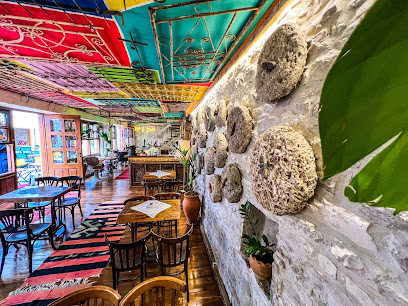
Bukowksi Bar Gjirokaster
Discover the vibrant Bukowski Bar in Gjirokaster, where eclectic decor meets a lively atmosphere, making it perfect for a night out.
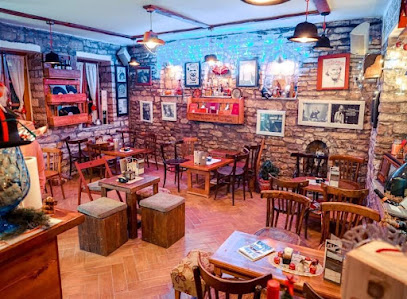
Gallery Irish Pub
Discover the vibrant atmosphere of Gallery Irish Pub in Gjirokaster, where Irish charm meets Albanian hospitality in an unforgettable setting.
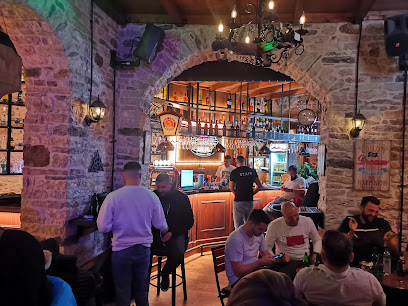
Babameto 2 - Cocktail Bar & Restaurant
Discover the vibrant flavors of Gjirokaster at Babameto 2, where cocktails meet culinary excellence in a lively atmosphere.
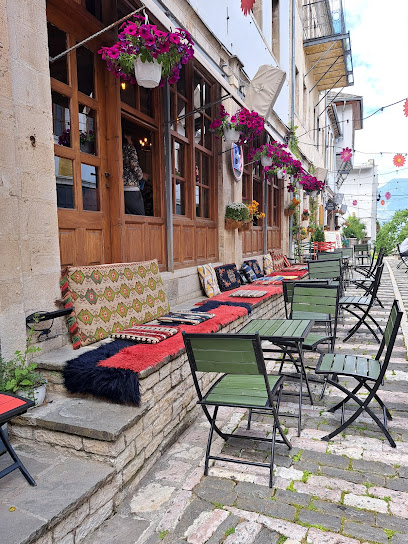
The Black Rose Pub
Experience authentic Albanian grilled cuisine at The Black Rose Pub in Gjirokaster, where great food meets a warm and welcoming atmosphere.
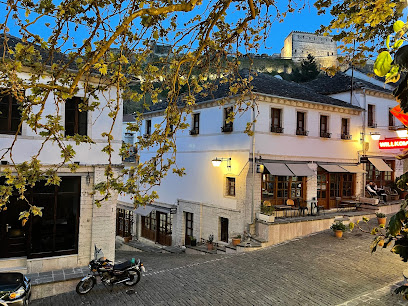
Classic Coffee Bar
Experience the rich flavors of Albanian coffee and delightful pastries in a cozy ambiance at Classic Coffee Bar in Gjirokaster.
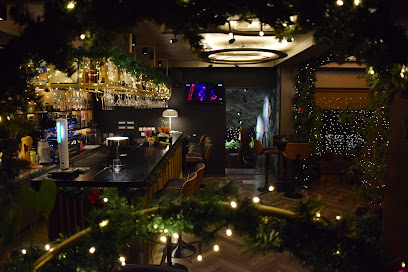
Old Town 13
Experience authentic Albanian flavors at Old Town 13, a charming grill and bar in the heart of Gjirokaster.
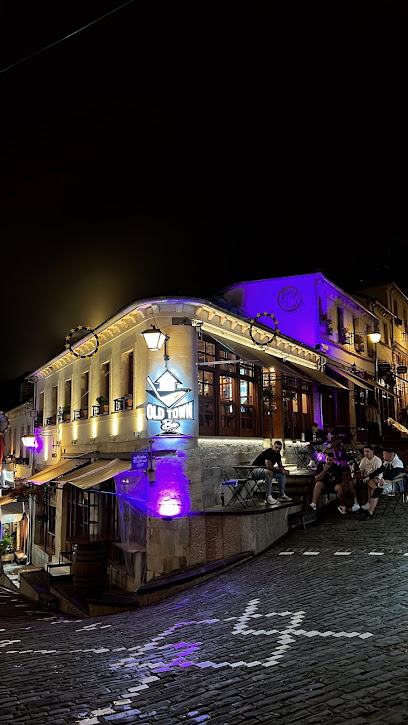
Grey Stone Bar
Discover the vibrant Grey Stone Bar in Gjirokaster, Albania, where local flavors meet a lively atmosphere and unforgettable experiences await.
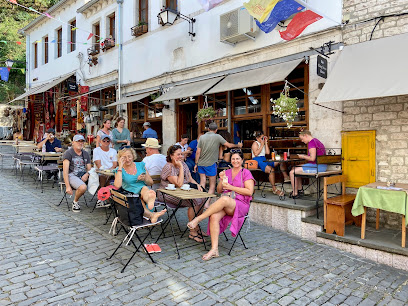
Rumors Restaurant Lounge
Discover the perfect blend of traditional Albanian cuisine and modern dining at Rumors Restaurant Lounge in Gjirokaster.
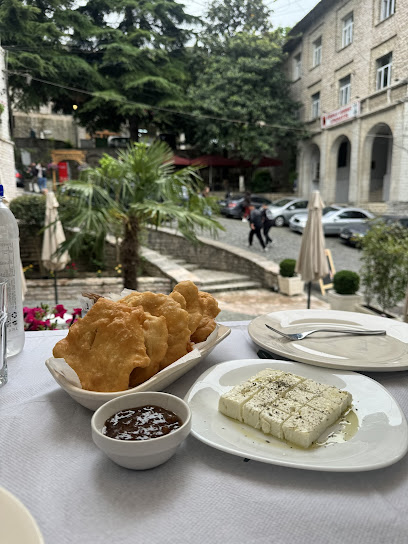
Bar Cafè Kotoni
Discover the enchanting Bar Cafè Kotoni in Gjirokaster, where delightful beverages and a warm atmosphere await every visitor.
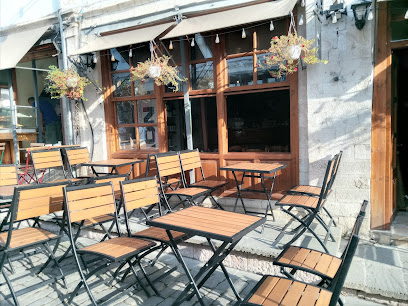
O’clock
Experience the vibrant nightlife at O’clock, Gjirokaster's premier bar offering a blend of local flavors and modern vibes.
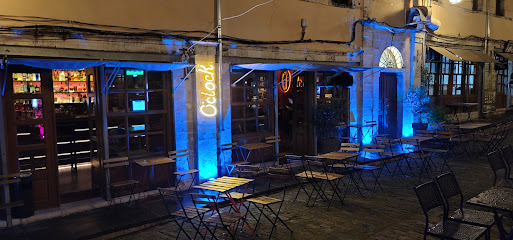
Bar Shtaka
Experience the vibrant atmosphere and local charm at Bar Shtaka, a must-visit bar in Gjirokaster, Albania, offering an impressive drink selection and friendly service.
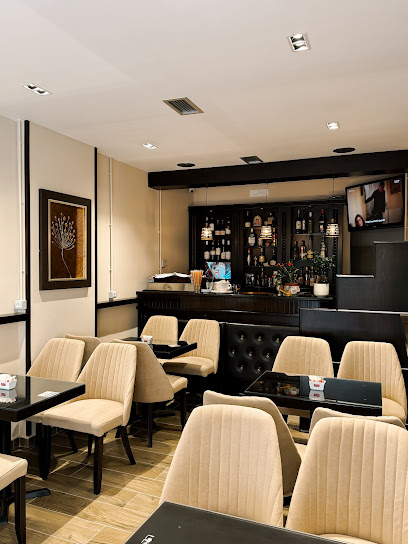
Bar Center
Experience the lively atmosphere of Bar Center in Gjirokaster, where locals and tourists meet for refreshing drinks and great conversation.
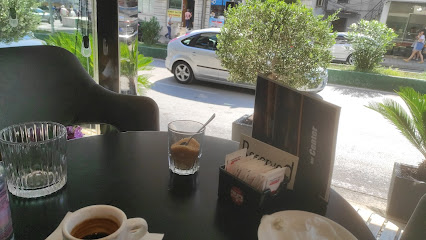
Local Phrases
-
- HelloMirëmëngjes
[meer-muhn-JEHS] - GoodbyeMirupafshim
[mee-roo-pahf-SHEEM] - YesPo
[poh] - NoJo
[yoh] - Please/You're welcomeJu lutem
[yoo loo-TEHM] - Thank youFaleminderit
[fah-leh-meen-deh-REET] - Excuse me/SorryMë falni
[muh fahl-NEE] - How are you?Si jeni?
[see yeh-NEE] - Fine. And you?Mirë. Dhe ju?
[mee-ruh. dheh yoo?] - Do you speak English?Flisni anglisht?
[flees-NEE ahng-LEESHT] - I don't understandNuk kuptoj
[nook koop-TOY]
- HelloMirëmëngjes
-
- I'd like to see the menu, pleaseDëshiroja të shikoja menunë, ju lutem
[duh-shee-ROH-yah tuh shee-KOH-yah meh-NOO-neh, yoo loo-TEHM] - I don't eat meatUnë nuk ha mish
[OO-nuh nook hah meesh] - Cheers!Gëzuar!
[guh-zwahr] - I would like to pay, pleaseDua të paguaj, ju lutem
[DOO-ah tuh pah-GWAHY, yoo loo-TEHM]
- I'd like to see the menu, pleaseDëshiroja të shikoja menunë, ju lutem
-
- Help!Ndihmë!
[NDIH-muh] - Go away!Shko larg!
[shkoh lahr-guh] - Call the Police!Thirrni policin!
[thir-NEE poh-LEE-tseen] - Call a doctor!Thirrni një doktor!
[thir-NEE nyuh dohk-TOHR] - I'm lostJam i humbur
[yahm ee hum-BOOR] - I'm illJam i sëmurë
[yahm ee suhm-ROO]
- Help!Ndihmë!
-
- I'd like to buy...Dëshiroj të blej...
[duh-shee-ROY tuh bleh] - I'm just lookingPo shikoj vetëm
[poh shee-KOY veh-TEM] - How much is it?Sa kushton?
[sah koos-TOHN] - That's too expensiveKjo është shumë e shtrenjtë
[kyoh ehs-TEH shoo-muh eh shtrehn-JTEH] - Can you lower the price?A mund të ulni çmimin?
[ah moon-DUH tw ul-NEE chmee-MEEN]
- I'd like to buy...Dëshiroj të blej...
-
- What time is it?Sa është ora?
[sah ehs-TEH oh-RAH] - It's one o'clockËshtë një e orë
[ehs-TEH nyuh eh oh-REH] - Half past (10)Njëmbëdhjetë
[nyuhm-BUHDH-yeh-tuh] - MorningMëngjes
[muhn-JEHS] - AfternoonPasdite
[pahs-DEE-teh] - EveningMbrëmje
[mbruhm-yeh] - YesterdayDje
[djeh] - TodaySot
[soht] - TomorrowNesër
[neh-SUHR] - 1Një
[nyuh] - 2Dy
[duh] - 3Tre
[treh] - 4Katër
[kah-tuhr] - 5Pesë
[peh-suh] - 6Gjashtë
[gyahsht] - 7Shtatë
[shtah-tuh] - 8Tetë
[teh-tuh] - 9Nëntë
[nuhn-tuh] - 10Dhjetë
[thjeh-tuh]
- What time is it?Sa është ora?
-
- Where's a/the...?Ku është një/e...?
[koo ehs-TEH nyuh/eh] - What's the address?Cila është adresa?
[CHEE-lah ehs-TEH ah-DREH-sah] - Can you show me (on the map)?A mund të më tregoni (në hartë)?
[ah moon-DUH tuh muh troh-GOH-nee (nuh hahr-TEH)] - When's the next (bus)?Kur është autobusi i ardhshëm?
[koor ehs-TEH ah-oh-BOO-see ee ahrdshuhm] - A ticket (to ....)Një biletë (në ....)
[nyuh bee-leh-TAH (nuh)]
- Where's a/the...?Ku është një/e...?
History of Gjirokastër
-
Gjirokastër's origins date back to the 4th century BC, when it was known as Argjiro. The settlement was part of the ancient Greek region of Epirus. Its strategic location on a hill provided natural fortification, making it an important center for trade and defense in the region.
-
During the medieval period, Gjirokastër was part of the Byzantine Empire and later the Despotate of Epirus, a successor state formed after the Fourth Crusade in 1204. The city flourished under the rule of the despots, who fortified it further and built many of its characteristic stone houses.
-
Gjirokastër fell under Ottoman rule in the early 15th century. Under Ottoman administration, the city grew significantly and became an important administrative and military center. The Ottomans constructed the Gjirokastër Fortress, which dominates the cityscape to this day. This period also saw the development of the city's unique architectural style, with its stone-built houses and narrow cobblestone streets.
-
The 19th century was a period of significant change for Gjirokastër, as the Albanian National Awakening began to take shape. The city became a center for the Albanian nationalist movement, hosting important figures such as the writer and Renaissance man, Çerçiz Topulli. Gjirokastër played a crucial role in the fight for Albanian independence from the Ottoman Empire.
-
In the 20th century, Gjirokastër's history was marked by significant political and social changes. After World War II, Albania fell under communist rule, led by the dictator Enver Hoxha, who was born in Gjirokastër. The city experienced industrialization and population growth during this period, but also the suppression of political dissent and traditional cultural practices.
-
Today, Gjirokastër is a UNESCO World Heritage site, celebrated for its well-preserved Ottoman architecture and historical significance. The city attracts tourists from around the world who come to explore its rich history, visit the Gjirokastër Fortress, and walk its picturesque streets. Gjirokastër continues to be a symbol of Albania's cultural heritage and resilience.
Gjirokastër Essentials
-
Gjirokastër is located in southern Albania and is accessible from several major cities. The nearest international airport is Tirana International Airport (TIA), approximately 225 kilometers away. From Tirana, you can take a bus or rent a car to Gjirokastër. The bus journey usually takes around 4 to 5 hours. Alternatively, you can also get there via buses from other Albanian cities such as Saranda (1-2 hours) and Vlora (2-3 hours).
-
Gjirokastër is a compact city, and many of its attractions are within walking distance. For longer distances or convenience, taxis are available and relatively affordable. There are also local minibuses (furgons) that connect Gjirokastër with nearby towns and villages. Renting a car can be an option if you want to explore the surrounding areas at your own pace, but be aware that some roads may be narrow and winding.
-
The official currency in Albania is the Albanian Lek (ALL). Credit and debit cards are accepted in many hotels, restaurants, and larger shops, but it is advisable to carry cash for smaller establishments and markets. ATMs are available throughout Gjirokastër, but make sure to withdraw enough cash beforehand if you plan to visit more remote areas.
-
Gjirokastër is generally a safe destination for tourists. However, like any travel destination, it is important to take standard precautions. Avoid walking alone at night in poorly lit areas and always keep an eye on your belongings in crowded places. While Gjirokastër does not have high-crime neighborhoods targeting tourists, staying vigilant and aware of your surroundings is always advisable.
-
In case of emergency, dial 112 for immediate assistance. Gjirokastër has local police stations and medical facilities available. It is recommended to have travel insurance that covers medical emergencies. Pharmacies are available in the city for minor health issues and over-the-counter medications.
-
Fashion: Do dress modestly, especially when visiting religious sites. Avoid overly revealing clothing. Religion: Do respect local customs and traditions. When visiting religious sites, dress conservatively and behave respectfully. Public Transport: Do be polite and considerate to other passengers. Don’t eat or drink on public transport. Greetings: Do greet people with a handshake and a smile. It's polite to use basic Albanian phrases such as 'Faleminderit' (Thank you) and 'Përshëndetje' (Hello). Eating & Drinking: Do try local dishes and accept food and drink offerings graciously. Don’t refuse hospitality, as it is considered impolite.
-
To experience Gjirokastër like a local, visit the local markets where you can purchase fresh produce and traditional Albanian goods. Engage with the locals, who are often friendly and eager to share stories about the city's history and culture. Don’t miss out on visiting the Gjirokastër Castle and the Ethnographic Museum. For a unique experience, take a stroll through the old bazaar and explore the traditional stone houses that give Gjirokastër its nickname 'The Stone City.'
Trending Landmark in Gjirokastër
Nearby Cities to Gjirokastër
-
Things To Do in Saranda
-
Things To Do in Tepelenë
-
Things To Do in Corfu
-
Things To Do in Vlorë
-
Things To Do in Berat
-
Things To Do in Ioannina
-
Things To Do in Patos
-
Things To Do in Pogradec
-
Things To Do in Kavajë
-
Things To Do in Meteora
-
Things To Do in Tirana
-
Things To Do in Durres
-
Things To Do in Krujë
-
Things To Do in Lezhë
-
Things To Do in Larissa










